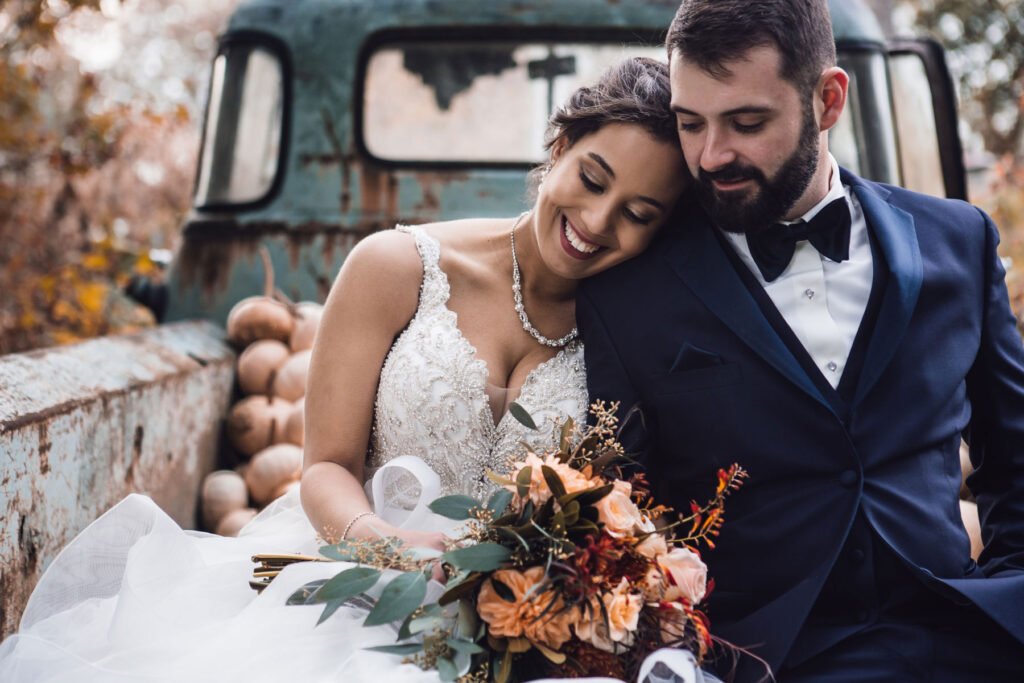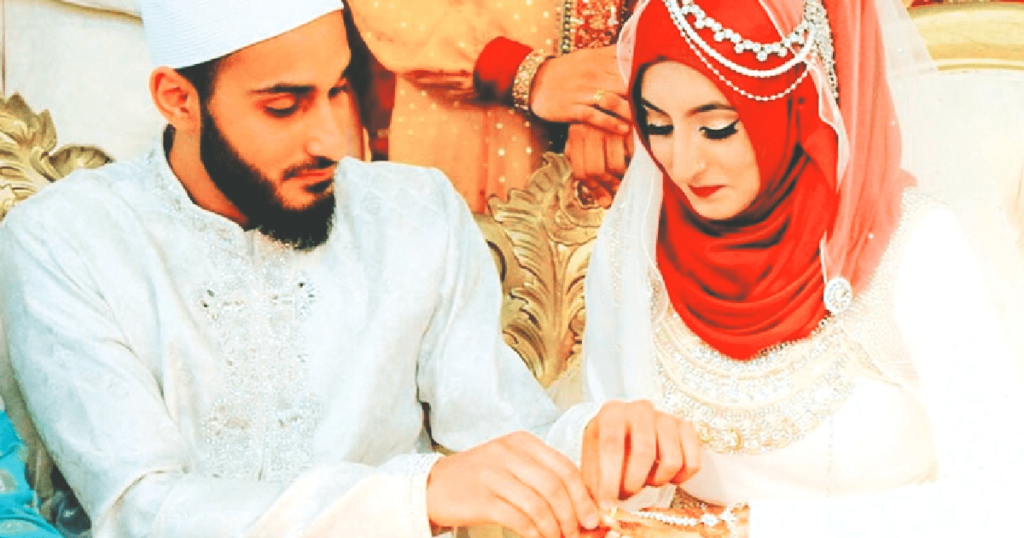Court Marriage in Pakistan's Cities: Karachi, Lahore, Islamabad, and Rawalpindi
Our court marriage services in Pakistan provide a seamless and legally recognized process for couples seeking a hassle-free union. Operating in major cities such as Karachi, Lahore, Islamabad, and Rawalpindi, our expert family lawyers ensure that all legal formalities are completed efficiently, following Pakistani law. Whether couples prefer a private court marriage or need assistance with documentation, affidavits, and marriage registration, our dedicated team offers comprehensive legal support. With years of experience handling matrimonial cases, we guarantee a smooth and secure process, making court marriage accessible, affordable, and legally sound for all clients.
Court marriage in Pakistan provides couples with a legal and straightforward way to solemnize their union without needing the consent or approval of parents or relatives. Whether it’s for personal, cultural, or logistical reasons, court marriage is a viable option for many. This article delves into the process, requirements, and benefits of court marriage in Pakistan, with a special focus on Karachi and other major cities.
What is Court Marriage in Pakistan?
Court marriage in Pakistan refers to a legally recognized marriage solemnized through a simple process, bypassing traditional familial permissions. It adheres to Islamic principles and Pakistani law, ensuring both religious and legal authenticity.
Key Characteristics of Court Marriage in Pakistan
- Legally Valid: Court marriages are conducted under Pakistani law, ensuring the union is recognized nationwide.
- Quick and Efficient: The entire process can be completed in a matter of minutes.
- No Parental Consent Required: Couples of legal age can marry without needing approval from parents or relatives.
- Inclusive of Islamic and Civil Principles: The process respects Islamic requirements while meeting legal formalities.
The Court Marriage Process in Pakistan
Step 1: Consultation with our Matrimonial Lawyer
The first step is to visit our office and meet with our experienced matrimonial lawyers. They will provide:
- A detailed briefing on the requirements and process.
- Assistance in preparing the necessary documentation.
Step 2: Documentation for Court Marriage
The following documents are required to proceed:
- CNICs or Passports: Both the bride and groom must have valid identification.
- Affidavit of Free Will: The bride must declare her willingness to marry without coercion.
- Photographs: Six passport-sized photographs of both partners.
- Witnesses: Two adult witnesses are required (arranged by you or by us).
- Fee: Payment of the required fee.
Step 3: Nikah Ceremony
If both partners are present with the required documents, the Nikah can take place on the same day. Otherwise, an appointment can be set for a later date.
- Ijab-o-Qabool: The Nikah Khawan (marriage officiant) will confirm the mutual consent of the couple.
- Khutba-e-Nikah: The officiant will recite the Islamic sermon.
- Signing of Nikah Nama: Both partners, witnesses, and the Nikah Khawan will sign the marriage contract.
- Prayers: A dua (prayer) is offered for the couple’s long and prosperous life together.
Step 4: Issuance of Nikah Nama
The couple receives a duly signed and sealed Nikah Nama (marriage contract), which serves as legal proof of their marriage.
Why Choose Court Marriage in Pakistan?
1. Simplicity and Speed
Court marriage in Pakistan is designed to be simple and quick. With the help of our lawyers, it can often be completed in just a few hours.
2. Legal Authenticity
Court marriage provides couples with a legally binding marriage contract, ensuring their rights are protected under Pakistani law.
3. Privacy and Autonomy
For couples seeking privacy or autonomy, court marriage offers a discreet and respectful option to formalize their union.
4. Assistance with Witnesses and Documentation
Our team assists couples by arranging witnesses if needed and ensuring all documentation is properly prepared and submitted.
Court Marriage in Karachi, Lahore, Islamabad, and Rawalpindi
Court Marriage in Karachi
Karachi is a bustling metropolis with diverse cultural dynamics. Our offices in Karachi are located in Gulistan-e-Jauhar and Gulzar-e-Hijri. Both offices provides comprehensive services for couples seeking court marriage, ensuring the process is handled with efficiency and professionalism.
Court Marriage in Lahore
Known for its rich cultural heritage, Lahore is home to many couples opting for court marriage. Our family lawyers in Lahore are experts in navigating the legal process smoothly. Our office is located at 1st Floor, Al-Mairaj Arcade, Near Surayya Azeem Trust, Hospital, Chauburji Chowk, Lahore, which is very easy to reach as it is in the centre of the city and everyone in Lahore knows where the Chauburji is situated.
Court Marriage in Islamabad and Rawalpindi
In the twin cities of Islamabad and Rawalpindi, our team has been providing court marriage assistance for several years. Our lawyers are well-versed in local laws and ensure a seamless experience for couples. Our Islamabad/Rawalpindi office is located in Karachi Company, G-9 Markaz at Mangla Road, which is a famous business centre of Islamabad. You can easily reach our office on 2nd floor of Laraib Plaza, which is famous for the only TCS Express Centre in the G-9 area.
Benefits of Choosing Our Family Lawyers
- Expert Guidance: Our matrimonial lawyers have extensive experience handling court marriage cases across Pakistan.
- Personalized Services: We tailor our services to meet each client’s unique needs.
- Comprehensive Assistance: From documentation to witness arrangement, we handle every aspect of the process.
- Efficiency and Transparency: We prioritize efficiency while keeping clients informed at every step.
Court Marriage in Pakistan is a Legally Valid Way for Couples for Marriage
Court marriage in Pakistan is a straightforward and legally valid way for couples to unite in marriage. With the expertise of our family lawyers and their deep understanding of the process, couples can experience a smooth, respectful, and hassle-free union. Whether in Karachi, Lahore, Islamabad, or Rawalpindi, we are committed to helping you every step of the way, ensuring your marriage is solemnized with dignity and authenticity.
Requirements for Court Marriage in Pakistan
Court marriages in Pakistan are conducted under the Muslim Family Laws Ordinance of 1961. This law requires that both parties to the marriage be Muslim (the female partner can be a Christian or Jew) and that they meet the following requirements:
-Both parties must be of age (18 years).
-Both parties must be free to marry (not already married).
-Both parties must give their consent to the marriage.
-The marriage must be conducted following religious rules.
Court Marriage Procedure in Pakistan
The process of court marriage in Pakistan is not as complicated as it may seem. If you are a Pakistani citizen and wish to marry someone who is not a Pakistani citizen, you can do so by following the steps below: Firstly, you must get authorization or power of attorney for your attorney/vakeel from your future spouse for Ijab-o-qabool (offer and acceptance), which is very necessary.
Once your lawyer/attorney has a power of attorney for signing Nikahnama on behalf of your spouse, you must submit six passport-size photographs of each of the bride and groom along with the required identification documents. After the documents have been submitted, the court will fix a date for the solemnization of the marriage. On the day of the solemnization, the bride and groom must be present before the magistrate and their witnesses.
The magistrate will then read the terms and conditions of marriage and ask both parties if they agree.
Once both parties have agreed to the terms and conditions, they will be asked to sign the marriage contract/Nikah Nama. Now, both parties are officially married according to Pakistani law after signing the Nikah Nama/marriage contract.
Documents Required for Court Marriage
If you are planning to get married in Pakistan through the court marriage process, there are certain documents that you will need to have in order to complete the process. These documents include the following:
A copy of your national identity card (NIC) or passport.
Documents proving your marital status (if applicable). This could include a divorce decree, the death certificate of the previous spouse, or annulment papers.
Photographs of both parties (6 each).
Two witnesses who are over the age of 18 and have valid NICs or passports.
The original copies of all documents must be presented when registering the marriage. The Registrar’s Office will keep these originals and issue certified copies.

Some Usefull Links
- Online Nikah
- Online Shadi
- Pakistani Nikah Nama
- Online Nikah in Pakistan
- NADRA Marriage Certificate
- Online nikah & Marriage Documents
- Online Nadra Marriage Certificate
- English Nikah Nama Form
- Online Marriage in Lahore
- Online Marriage in Urdu
- Court Marriage in Pakistan
- Online Shadi in Pakistan
- Online Nikah nama Form
- NADRA Marriage Certificates
- Court Marriage Procedure
- Nikah Khawan Services
- Court Marriage & Nikah
- Court Marriage Law
- Court Marriage & Civil Marriage
- Nikah Khawan
- Online Marriage in Pakistan
- Online Nikah Service For Overseas Pakistanis
- Online Nikah in Islam
- Is Online Marriage Valid?


Court Marriage in Karachi, Pakistan
Major Characteristics
Court marriage in Karachi, Pakistan provides a legal framework for couples to formalize their union.
Civil marriage in Karachi, Pakistan allows individuals to marry without the need for elaborate traditional ceremonies.
Court marriage in Karachi, Pakistan ensures legal protection for the rights of both partners.
Civil marriage in Karachi, Pakistan is a simple and cost-effective way to solemnize a marriage.
Court marriage in Karachi, Pakistan is a legally recognized union, valid under Pakistani law.
Civil marriage in Karachi, Pakistan empowers couples to marry without parental or societal interference.
Court marriage in Karachi, Pakistan requires the free consent of both parties, ensuring autonomy.
Civil marriage in Karachi, Pakistan protects women’s rights in marriage through legal documentation.
Court marriage in Karachi, Pakistan eliminates the need for religious rituals, focusing solely on legal procedures.
Civil marriage in Karachi, Pakistan is available to adults of legal age, irrespective of their backgrounds.
Court marriage in Karachi, Pakistan simplifies the process of obtaining a marriage certificate.
Civil marriage in Karachi, Pakistan guarantees inheritance rights for both partners.
Court marriage in Karachi, Pakistan is particularly beneficial for interfaith or intercultural couples.
Civil marriage in Karachi, Pakistan offers flexibility for couples to marry at their convenience.
Court marriage in Karachi, Pakistan is recognized for its transparency and straightforward process.
Civil marriage in Karachi, Pakistan allows couples to avoid unnecessary societal pressures.
Court marriage in Karachi, Pakistan provides a secure legal platform for registering marriages.
Civil marriage in Karachi, Pakistan ensures that the union is legally binding and enforceable.
Court marriage in Karachi, Pakistan is suitable for couples who value privacy and discretion.
Civil marriage in Karachi, Pakistan can be performed quickly, often within a single day.
Court marriage in Karachi, Pakistan allows couples to bypass traditional dowry practices.
Civil marriage in Karachi, Pakistan is an excellent choice for those seeking a non-traditional approach.
Court marriage in Karachi, Pakistan is equally valid for Muslims and non-Muslims.
Civil marriage in Karachi, Pakistan provides legal evidence of marriage for visa applications.
Benefits of a Court Marriage in Pakistan
There are many benefits to getting married in Pakistan through the court system rather than a traditional marriage ceremony. For one, it is cheaper and more convenient. There is no need to pay for a lavish wedding or to hire a professional photographer. Plus, you can avoid all the hassle of coordinating with a large group of people.
Another big benefit is that you will have all the legal protections of marriage. This includes things like spousal support in the event of divorce or death and inheritance rights. If you have children together, they will also have certain legal rights and responsibilities. Court marriages are also more difficult to annul than traditional marriages.
Getting married in Pakistan through the court system can save you time, money, and stress. It is also a great way to ensure that you and your spouse have all the legal protections of marriage.
Tips and Advice Before Opting For Court Marriage in Pakistan


You should keep a few things in mind before opting for a court marriage in Pakistan. First, you should know the legal requirements for a court marriage. Second, you should ensure that both you and your partner are ready for a lifetime commitment. Lastly, you should be prepared to face any challenges that may arise during the process of getting married.
The first thing you need to do is to research the legal requirements for a court marriage in Pakistan. You can do this by contacting the local registrar or by searching online. Once you have gathered all the required information, you should proceed to the next step.
The second thing you need to do is to sit down with your partner and discuss whether or not you both are ready for a court marriage. This is an important decision that will affect both of your lives forever. If either of you is unsure about getting married, it is best to wait until you are both certain.
After you have decided to go ahead with a court marriage, the next step is to start preparing for the big day. This includes obtaining all the necessary documents, such as birth certificates and ID cards. You will also need to find a suitable venue for the ceremony and arrange food and accommodation for your guests.
Once everything is in place, it is time to tie the knot! The process of court marriage in Pakistan is relatively straightforward.
Common Questions When It Comes To Court Marriages
Understanding Court Marriage in Pakistan: A Simple and Legal Union
Court marriage, also known as civil or registered marriage, is a legal process of getting married in front of a magistrate or judge in some countries, but in Pakistan, there is no such requirement. In a court marriage, the couple must provide necessary documents such as identification. The couple can go to a lawyer with their witnesses and get married after signing a free-will declaration/affidavit. Then the Nikah is solemnised, and the Nikah Registrar then issues a marriage contract (Nikah Nama), which serves as legal proof of the marriage. Court marriage is a common option for couples who wish to get married without any religious ceremony or who belong to different religions or sects that may not allow interfaith marriages.
Who Can Get Married Through a Court Marriage?
In many countries, including Pakistan, any adult who meets the legal requirements for marriage can get married through a court marriage. Typically, the legal requirements include being of sound mind and age, not already being married to someone else, and being able to provide identification and age proof. It’s important to note that the specific requirements for court marriage can vary by country and jurisdiction. In Pakistan, the legal age for marriage is 18 years, but the age requirement can be lowered in certain circumstances. Additionally, both parties must be of sound mind and provide identification and age proofs to marry through court marriage.


What Are The Requirements for Court Marriage in Pakistan?
The requirements for court marriage in Pakistan are that both parties must be of legal age and not already married and must have the consent of their parents or guardians if they are under 18 years old. The couple must also present two witnesses at the time of the ceremony.
What is The Process for Solemnizing a Court Marriage in Pakistan?
Debunking Myths: Court Marriage in Pakistan Does Not Require a Judge or Magistrate
It’s a common misconception that a judge or magistrate is required for court marriage in Pakistan. In fact, in many cases, court marriages can be solemnized by a Nikah Khawan/Qazi/Imam or a Nikah Registrar designated as a marriage registrar by the government.
Court Marriage in Pakistan: Role of a Marriage Registrar Under the Pakistan Family Laws Ordinance 1961
According to the Pakistan Family Laws Ordinance 1961, a marriage registrar can solemnize a court marriage in Pakistan. The government can appoint the registrar at the district or local village level. The registrar has the authority to issue a marriage contract, and they can perform the marriage ceremony in their lawyer’s or registrar’s office or any other place.
Marriage registrars are responsible for verifying the legal eligibility of the couple, conducting the marriage ceremony, and issuing the marriage contract (Nikah Nama).
Understanding the Role of Judges and Nikah Registrars in Court Marriage Procedures in Pakistan
It’s important to note that the requirements for court marriage, including the involvement of a judge or magistrate, can vary depending on the specific circumstances of the couple’s case and the jurisdiction in which they are located. While a judge or magistrate can be involved in a court marriage in Pakistan, it is not necessarily required, and a government-appointed Nikah registrar can perform the ceremony. Couples considering court marriage in Pakistan should consult us or any other legal professional to understand their jurisdiction’s specific requirements and procedures.
Court Marriage Involves Various Steps
Court marriage in Pakistan is an important legal process that one should be aware of. It involves various steps, from hiring a family lawyer for a court marriage to registering the couple’s wedding contract and obtaining a NADRA marriage certificate. With this article, we have provided you with all the necessary information related to court marriage in Pakistan so you can make an informed decision. We hope this has helped you understand how the process works and wish you all the best for your journey!

